This article was co-authored by Chris M. Matsko, MD. Dr. Chris M. Matsko is a retired physician based in Pittsburgh, Pennsylvania. With over 25 years of medical research experience, Dr. Matsko was awarded the Pittsburgh Cornell University Leadership Award for Excellence. He holds a BS in Nutritional Science from Cornell University and an MD from the Temple University School of Medicine in 2007. Dr. Matsko earned a Research Writing Certification from the American Medical Writers Association (AMWA) in 2016 and a Medical Writing & Editing Certification from the University of Chicago in 2017.
There are 10 references cited in this article, which can be found at the bottom of the page.
wikiHow marks an article as reader-approved once it receives enough positive feedback. In this case, 85% of readers who voted found the article helpful, earning it our reader-approved status.
This article has been viewed 480,004 times.
There are many reasons you may wish to improve your sense of smell. For one thing, it's closely linked to your sense of taste. Try tasting food with your nose pinched! It is also a required skill to describe aromas in wine, coffee, beer, even tea. Our sense of smell tends to decline with age, and there are a number of more serious smell disorders which require medical treatment, but you can take steps to improve and maintain your sense of smell.
Steps
Taking Action to Improve Your Sense of Smell
-
1Pay more attention to what you already smell. People often say "use it or lose it" about muscles, but the same can be applied towards the senses. The more you use your senses, the better you get! Learn how to describe smells. You might even want to keep an olfactory journal! For extra practice, have someone hold various things to your nose while you're blindfolded and see if you can identify the smells.[1]
- Next time you are drinking a cup of coffee take time to really breathe in the smell before you drink it. When you are about to bite into some strong cheese, be sure to smell it before eating it.
- If you regularly smell things before consuming them, you can help improve your sense of smell over time.
-
2Train your nose. As well as being more attentive to the smells you encounter in everyday life, you can go further and adopt a training regime for your sense of smell. Begin by simply choosing four smells that you are fond of, such as fresh coffee, banana, soap or shampoo, and blue cheese. Then each day take a minute to go through and smell each one individually to stimulate the receptors inside your nose. Try to repeat this four to six times every day.[2]
- There is evidence that visualizing smells can help to improve your sense of smell. Take a minute to imagine your favourite smells.[3]
- When you are trying to identify a particular smell you may find it useful to smell with a shallow sniff rather than a long deep inhalation.
Advertisement -
3Get plenty of exercise. Studies suggest that our sense of smell is sharper after exercise. The causative link is uncertain, but it has been reported that the sense of smell appears to be better after exercise. Exercising enough to work up a sweat at least once a week has been connected to a lower risk of the sense of smell diminishing as you get older. [4]
- This could be because exercise improves brain functions or because it contributes to better general health.
-
4Talk to your doctor about nasal sprays. If your sense of smell is impaired by obstructive disorders such as congestion or hay fever, allergies, sinus infection, or nasal polyps, it will be necessary to treat the underlying issue in order to improve your sense of smell. Talk to your doctor about nasal steroids, which may help clear your nostrils and help you breathe and smell better.
-
5Get more zinc and vitamin B12 in your diet. Hyposmia (the medical term for an impaired sense of smell) is sometimes linked with a deficiency in the mineral zinc, and a deficiency of vitamin B12 in vegetarians.[5] To boost your sense of smell, try eating zinc-rich foods, such as oysters, lentils, sunflower seeds, pecans and consider taking a multivitamin supplement that contains at least 7 mg of zinc each day.
-
6Note how certain smells make you feel. The nerves that sense smell are directly connected to the emotional part of your brain, leaving your rationality out of the equation. Studies found, for example, that the smell of fast food wrappers, fresh bread or pastry increase the likelihood of road rage; peppermint and cinnamon improve concentration and decrease irritability in drivers; and lemon and coffee promote clear thinking and high concentration levels in general.[6]
Knowing What to Avoid
-
1Avoid foods that cause excess mucus production. Have you ever noticed that your sense of smell fades, or perhaps completely disappears, when you have a cold? Congestion in the membranes in the nose that contain the smell-sensitive nerve endings can dull your ability to smell, and avoiding foods that promote stuffiness (generally dairy products like milk, cheese, yogurt and ice cream) might help. Gradually re-introducing these foods one-by-one will help you to identify which have the biggest impact.
- There is a channel from the back of your throat to the sensory cells in your nose. If this channel is blocked by any kind of congestion, your ability to taste food will be affected.
-
2Steer clear of substances that can impair your sense of smell. Various pollutants such as chemical fumes can interfere with your sense of smell. Smoking is one common example of a substance that can compromise your ability to smell. Quitting could help you recover a better sense of smell.[7] Your smell will be most diminished in the thirty minutes after smoking a cigarette.
- Various drugs can hamper your ability to smell. These includes stimulants, depressants, antibiotics and other drugs. If you think you are taking something that might be impairing your sense of smell, contact your doctor.[8]
- Some cold remedies can make you lose your sense of smell.
- Be sure you don't stop taking a prescribed course of drugs without talking to your doctor first.
-
3Stay away from stink. There is a suggestion that prolonged exposure to bad smells tends to numb your ability to smell. For example, someone who works with compost everyday might over time become less sensitive to the odour.[9] Try to avoid prolonged exposure to strong smells, and if you do have to be around them, consider wearing a mask over your nose and mouth. Wearing a mask can help filter out some of the smells.
Analysing Your Sense of Smell
-
1Understand the causes of a diminished sense of smell. There are numerous potential causes of a loss of sense of smell. These include damage to the mucous membranes lining the inside of your nose and obstructions to your nasal passage. Damage to mucous membranes can occur when you have a cold, flu, or suffer from hay fever or sinusitis. These are the most common causes of a loss of smell and are generally temporary.[10]
- Obstructions, such as nasal polyps, can cause problems with smell and may in some cases require surgery.
- Damage to your brain or nerves can also affect your sense of smell. A head injury can result in a loss of sense of smell.
-
2Evaluate your sense of smell. Before you consider going to the doctor, you can ask yourself some questions to begin the process of evaluating the deterioration of your sense of smell. The answers to these questions will help the diagnosis if you do go to a doctor. Start by asking when you first became aware of the loss of smell, and then ask yourself about the conditions under which this occurred.
- Was this a one off experience or does it recur? If so, what links the times when it does recur? Were you suffering from hay fever at the time?
- Did you have a cold or flu at the time?
- Had you suffered a head injury?
- Were you exposed to pollutants or substances such as dust to which you may have had an allergic reaction?
-
3Know when to visit a doctor. Short-term changes in your sense of smell are relatively common, if you have a cold for example, but if the problems persist and your smell doesn't return you should make an appointment with your doctor. If necessary your doctor will refer you to a specialist who will test you and give you a diagnosis.[11] You may be asked to smell specific odours in a paper booklet, and the specialist may perform an endoscopic examination of your nose.
- It may not seem the most serious health problem, but your sense of smell is important and you should visit the doctor if you have concerns.
- If you are unable to smell be especially careful with any gas appliances and be sure not to eat any food that has passed its best before date.
- Problems with your chemical senses can be an early sign of more serious conditions including Alzheimer's disease, Parkinson's disease and multiple sclerosis.
- Smell disorders can also be related to hypertension, obesity, malnutrition and diabetes.[12]
Expert Q&A
Did you know you can get expert answers for this article?
Unlock expert answers by supporting wikiHow
-
QuestionWhat causes anosmia?
 Payam Daneshrad, MDDr. Payam Daneshrad is a board certified Otolaryngologist, a board eligible Facial Plastic Surgeon, and the Owner and Director of Daneshrad Clinic in Los Angeles, California. With over 19 years of experience, Dr. Daneshrad specializes in adult and pediatric Otolaryngology-head and neck surgery, packing-less nasal surgery, minimally invasive sinus surgery, and snoring treatment. He also uses the newest surgical ENT techniques for tonsillectomy, adenoidectomy, thyroidectomy, and parathyroidectomy. Dr. Daneshrad graduated with a BS and the highest honors from the University of California, Berkeley. He earned his Doctor of Medicine (MD) from Tulane University School of Medicine, where he was accepted into the AOA, the medical honor's society, and the Tulane University School of Public Health. Dr. Daneshrad received his medical training from the University of Southern California, where he currently serves as an Associate Clinical Professor. Dr. Daneshrad is the Otolaryngologist and Facial Plastic Surgeon for the Los Angeles Sparks and the athletic teams of Loyola Marymount University.
Payam Daneshrad, MDDr. Payam Daneshrad is a board certified Otolaryngologist, a board eligible Facial Plastic Surgeon, and the Owner and Director of Daneshrad Clinic in Los Angeles, California. With over 19 years of experience, Dr. Daneshrad specializes in adult and pediatric Otolaryngology-head and neck surgery, packing-less nasal surgery, minimally invasive sinus surgery, and snoring treatment. He also uses the newest surgical ENT techniques for tonsillectomy, adenoidectomy, thyroidectomy, and parathyroidectomy. Dr. Daneshrad graduated with a BS and the highest honors from the University of California, Berkeley. He earned his Doctor of Medicine (MD) from Tulane University School of Medicine, where he was accepted into the AOA, the medical honor's society, and the Tulane University School of Public Health. Dr. Daneshrad received his medical training from the University of Southern California, where he currently serves as an Associate Clinical Professor. Dr. Daneshrad is the Otolaryngologist and Facial Plastic Surgeon for the Los Angeles Sparks and the athletic teams of Loyola Marymount University.
Board Certified Otolaryngologist
-
QuestionI have had a cold for three days and my sense of smell has been gone for three days. How can I get it back soon?
 Chris M. Matsko, MDDr. Chris M. Matsko is a retired physician based in Pittsburgh, Pennsylvania. With over 25 years of medical research experience, Dr. Matsko was awarded the Pittsburgh Cornell University Leadership Award for Excellence. He holds a BS in Nutritional Science from Cornell University and an MD from the Temple University School of Medicine in 2007. Dr. Matsko earned a Research Writing Certification from the American Medical Writers Association (AMWA) in 2016 and a Medical Writing & Editing Certification from the University of Chicago in 2017.
Chris M. Matsko, MDDr. Chris M. Matsko is a retired physician based in Pittsburgh, Pennsylvania. With over 25 years of medical research experience, Dr. Matsko was awarded the Pittsburgh Cornell University Leadership Award for Excellence. He holds a BS in Nutritional Science from Cornell University and an MD from the Temple University School of Medicine in 2007. Dr. Matsko earned a Research Writing Certification from the American Medical Writers Association (AMWA) in 2016 and a Medical Writing & Editing Certification from the University of Chicago in 2017.
Family Medicine Physician
Warnings
- Not all smells encountered are pleasant. If your sense of smell improves you may find yourself noticing more foul odours.⧼thumbs_response⧽
- Sudden loss of the sense of smell is most commonly due to upper respiratory tract infection, such as sinusitis and the common cold.⧼thumbs_response⧽
- Less commonly, the inability to smell may be due to disease, such as damage to cranial nerve I (the olfactory nerve), cystic fibrosis causing nasal polyps, hypothyroidism, Parkinson's disease, Alzheimer's disease, Kallman syndrome. Please seek medical advice if you have unexplained loss of sense of smell.⧼thumbs_response⧽
References
- ↑ https://sciencenorway.no/forskningno-norway-smell/why-you-should-train-your-sense-of-smell/1449767
- ↑ https://sciencenorway.no/forskningno-norway-smell/why-you-should-train-your-sense-of-smell/1449767
- ↑ https://www.science.org/content/article/how-sharpen-your-sense-smell-without-using-your-nose
- ↑ https://www.livescience.com/40515-exercise-protects-smelling-sense.html
- ↑ http://www.mayoclinic.org/symptoms/loss-of-smell/basics/causes/sym-20050804
- ↑ https://www.nbcnews.com/id/wbna8074769
- ↑ https://www.aafp.org/afp/2000/0115/p427.html
- ↑ https://www.betterhealth.vic.gov.au/health/conditionsandtreatments/anosmia-loss-of-smell
- ↑ https://www.health.ny.gov/publications/6500/index.htm
About This Article
To improve your sense of smell, start by tuning into your senses and paying closer attention everyday smells. You can also train your nose by taking time every day to smell and imagine a few favorite familiar scents. To improve your sense of smell physically, get lots of exercise, which may boost your senses by stimulating brain function. If those methods don’t work, talk to your doctor about whether you might have nasal polyps or some other physical impairment to your sense of smell. For more advice from our Medical co-author, including how to avoid things that reduce your sense of smell, keep reading!
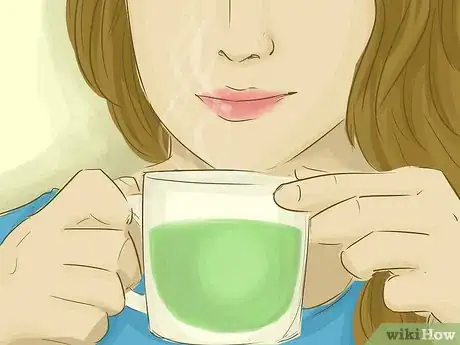


-Step-8-Version-3.webp)
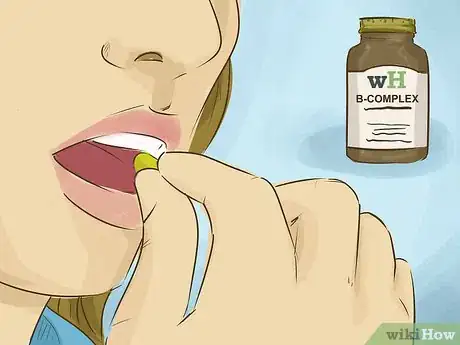

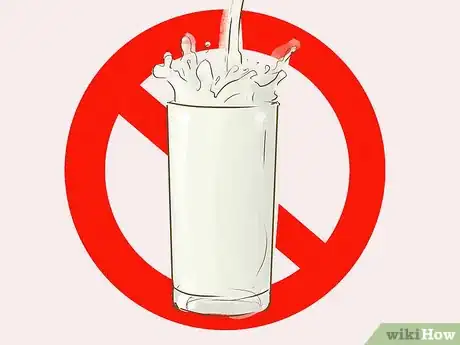
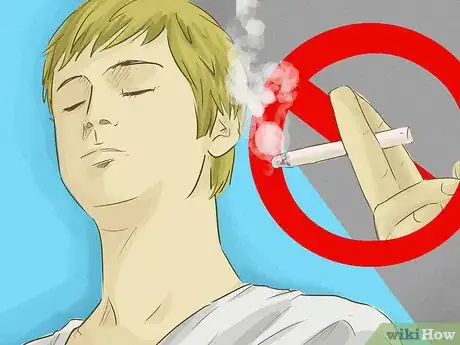
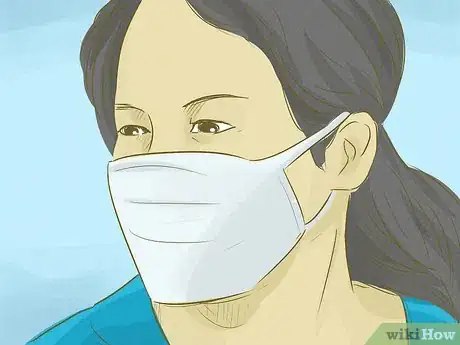
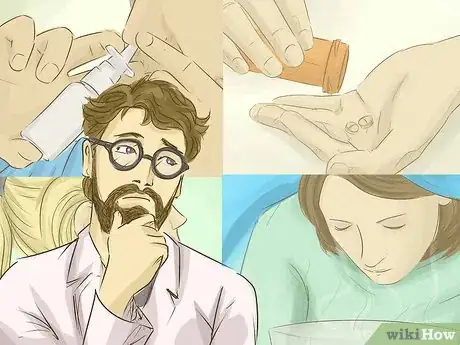

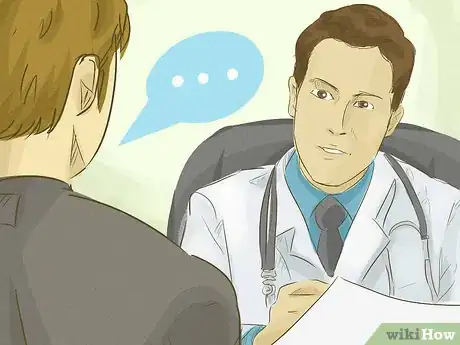
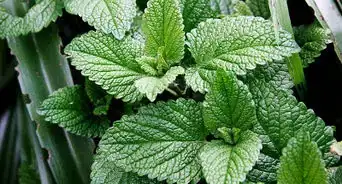





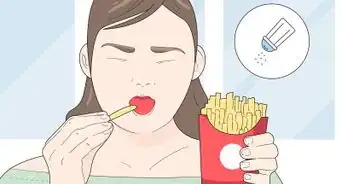














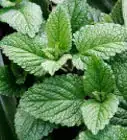






































Medical Disclaimer
The content of this article is not intended to be a substitute for professional medical advice, examination, diagnosis, or treatment. You should always contact your doctor or other qualified healthcare professional before starting, changing, or stopping any kind of health treatment.
Read More...